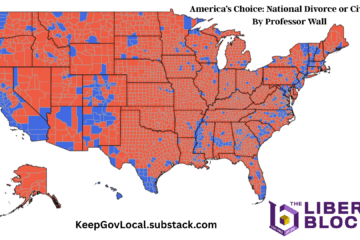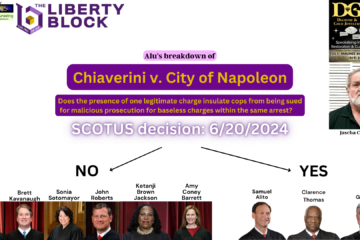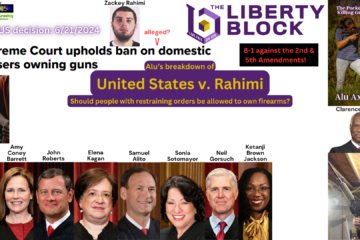American Democrats have been using the Scandinavian nations of Denmark, Sweden, Finland, Iceland, & Norway as examples of socialist success stories for years. This seems to be largely due to the ‘World Happiness Report’, which is published by the United Nations annually. The report consistently ranks the Scandinavian nations at the top of the list. Leftist Americans are working quite hard to make the US more like those nations. After arguing for a few years against individuals who fall for this propaganda, I’ve finally decided to write down the arguments that destroy the ‘Scandinavian Fallacy’.
Before we delve into the specific reasons why it is asinine to compare the US to states like Denmark, I’d like to reframe this debate. Whereas the definition of ‘socialism’ is the forceful collection and redistribution of resources by the government, I contend that every state on Earth is socialist to some extent. For this reason, I find phrases like ‘The US is capitalist and Denmark is socialist’ to be disingenuous. The US (federal) government alone forcefully takes around 40% of the money from each individual and redistributes it to states, individuals, and entities of its choosing (often in an effort to enrich themselves and to win votes).
This being said, many nations are more socialist than the US and some nations are less socialist and more free than the US. The nations that are more socialist include China, North Korea, Cuba, Venezuela, Britain, Germany, France, Belgium, Austria, Italy, Canada, Hungary, Russia, and the Scandinavian States. Nations with less socialism than the US might include Hong Kong, Singapore, and New Zealand.
As you read this article, keep in mind the basic premise of socialism: The government collects some or all of the money from each individual and then redistributes it to the people in need and to the projects that benefit society – as determined by the government. Keep in mind that it’s easier to trust your local town board to spend your collective money than it is to trust faraway federal politicians and bureaucrats to spend your money appropriately.

One of the most important differences between the US and the Scandinavian nations is size. The US is essentially one state (since the federal government directly or indirectly controls the entire US) consisting of over 300,000,000 people. The 5 major Scandinavian nations have an average of 5,000,000 people. As I’ve been saying for a while, the more local the government, the better the society. In the US, our politicians are extremely unreachable and unaccountable to us. They simply do not represent us, and they don’t have to. In a small state with only a few people, politicians are much more likely to use the money appropriately, since the whole population is much closer to one another.
Similar to the population issue is the demographic issue. Of the 5 major nations (Denmark, Sweden, Finland, Iceland, & Norway) the average percentage of foreign-born residents seems to be somewhere between 5-10%. This makes the region extremely white. The most diverse state in the region is Sweden. In recent years, Sweden has diversified significantly by allowing many ‘refugee’ migrants to enter. As a result, Sweden has become the very worst nation in the region in regards to overall quality of life. These states are comprised of people who are essentially identical in terms of race, religion, culture, heritage, style, taste, and lifestyle. This homogeneity fosters a closer attachment between individuals, which makes each individual less likely to stop working and become a parasite that leeches from its friends and family. (Naturally, the closest ties are between families, and in decreasing order of closeness, teams, communities, cities, states, and countries.)
Think about this: The political left in the US is pushing to make the US more like nations that are almost totally homogeneous/barely diverse. How is it that they keep a straight face when calling people on the right ‘racist xenophobes’?
If the left really wants the US to be like the Scandinavian nations, are they advocating for a homogeneous society, one that in order to attain they would first need to remove millions of people of color? I do not support that sort of fascist racism.
Additionally, the US would have to completely reform laws which govern whether non-government citizens could possess weapons if they were to become more like the Scandinavian nations. Denmark does not even allow women to own pepper spray. If you support women being defenseless when attacked by violent rapists, you should want the US to become more like Denmark.
If the US is to become like the Scandinavian States, we must also shut our borders and make it much harder to immigrate or become a citizen. In Norway, for instance, you must live in the country for seven years, commit no crimes, learn the language proficiently, and then you could apply to be a citizen. To become a Danish citizen, you must live there for 9 years, not commit crimes, you must speak the national language, and you must not draw welfare. You must be self-sufficient. If such requirements were proposed in the US, the radical left would explode.
It is worth mentioning that perhaps the Scandinavian people seem to be the happiest because they use the most antidepressants. According to many sources, Iceland, Sweden, Denmark, and Finland are among the top 10 states in the world in antidepressant use per capita. This makes for an interesting question: Are Scandinavians the happiest or the most depressed in the world? Even if Scandinavian people were truly happy, I know that I could not be happy with 70% of my money being taken by force. Could you?
In the 2018 ‘World Happiness Report’, the US dropped from 14th to 18th most happy nation in the world. If you ask me, this is due to increasing taxes and regulation and decreasing freedom, more socialism, essentially. Make no mistake; socialism is the antithesis of personal freedom. The more money the government takes from people by force, the more money and power the government has, and the less freedom the individual is left with.


